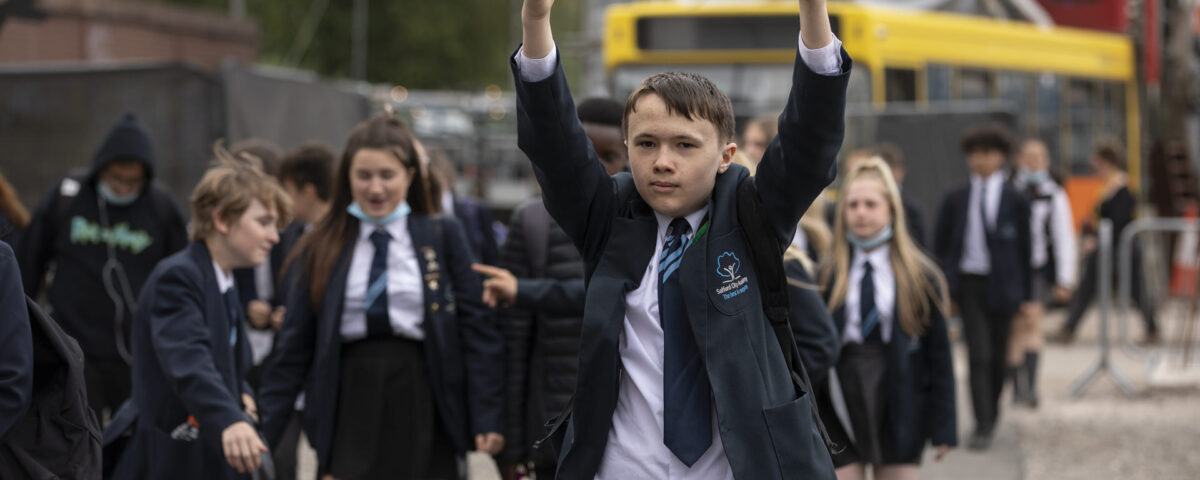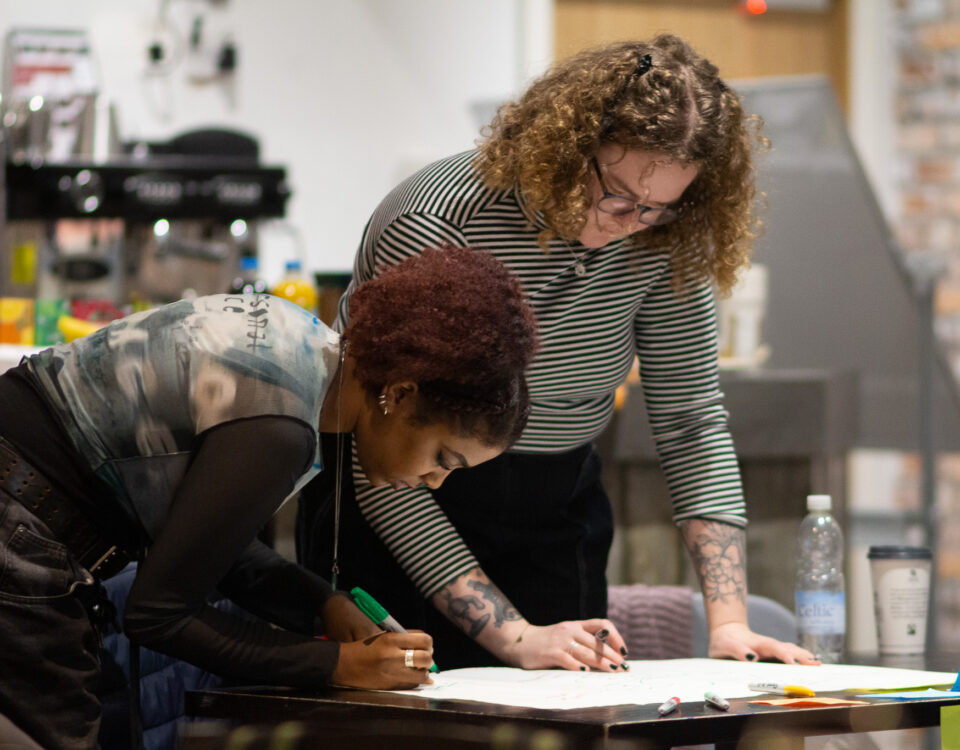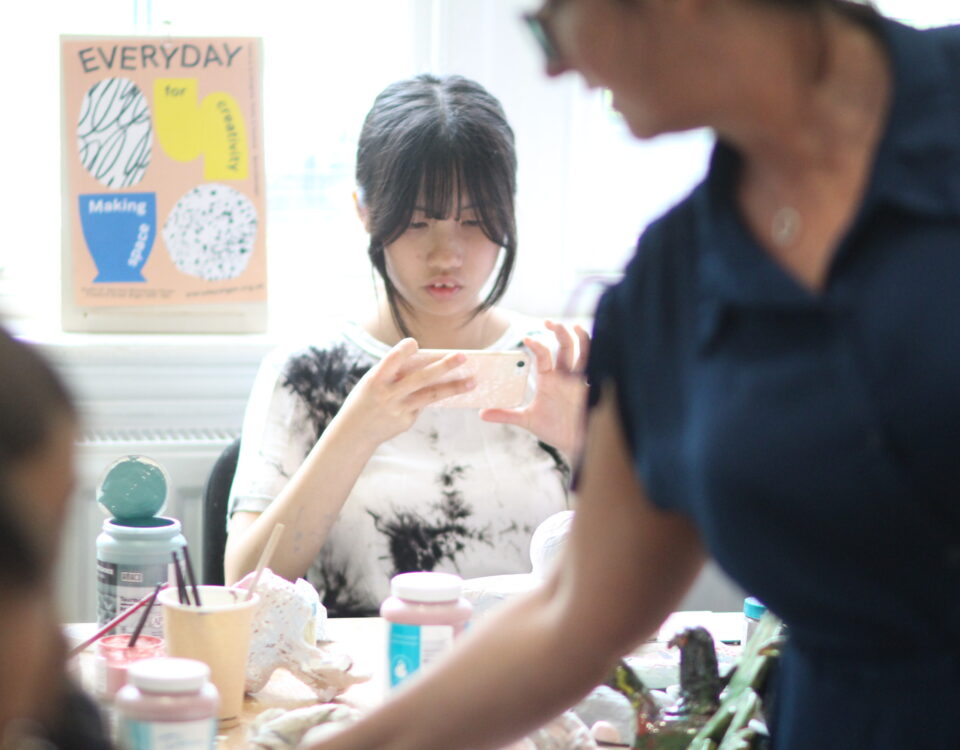
Pushing Boundaries
February 2, 2023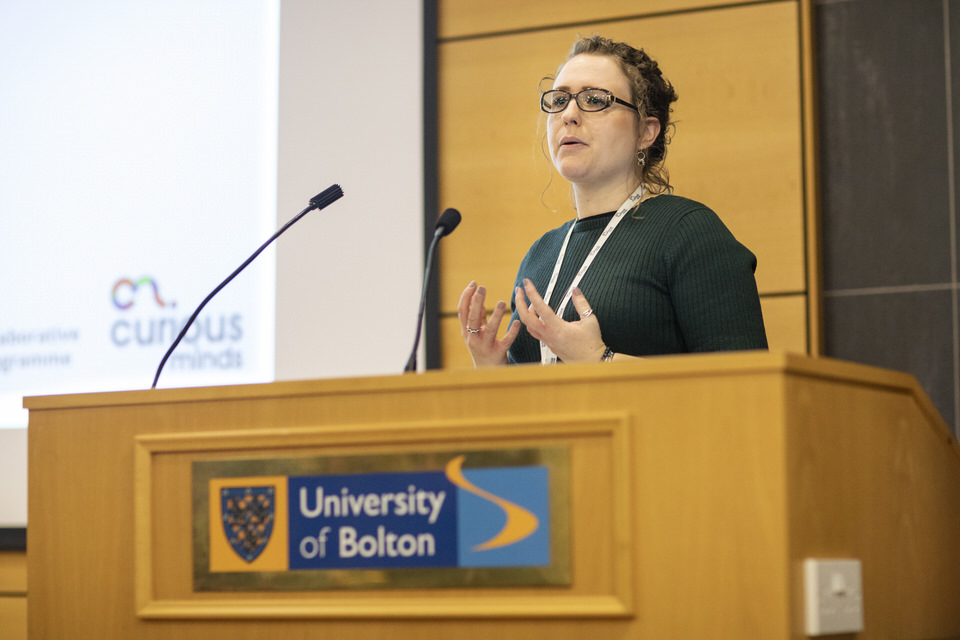
Creating Careers
February 24, 2023Curious Citizens provide fresh eyes and fresh ideas
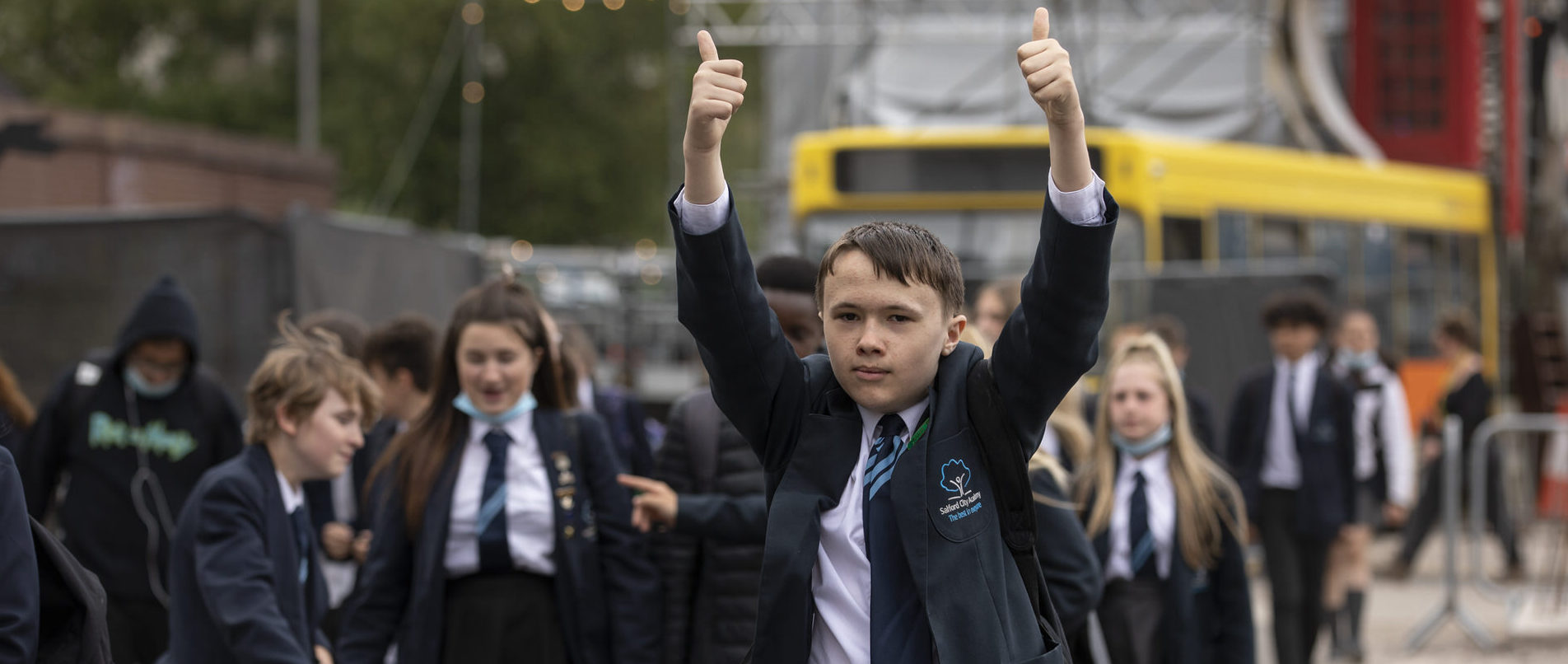
We’re delighted to see our Cultural Citizens programme included amongst 24 case studies highlighting the value of the arts in schools, published to mark the 40th anniversary of the Calouste Gulbenkian Foundation (UK Branch) Arts in Schools report in 1982.
The project featured in this case study was part of a pilot announced by the Department for Digital, Culture, Media & Sport (DCMS) in 2016, and we’re excited to be running a new and improved version of the scheme right now - partnering with 9 intrepid schools in Wigan and West Cumbria.Our new Curious Citizens programme retains the most important features of the earlier model; 18 groups, each made up of 10 young people (aged between 12 and 14) who rarely, if ever, engage with arts and culture, first choose and then organise and make 5 cultural visits.
After the visits, they provide feedback to the venues - giving rare and valuable insight into their experiences as first-time engagers. This helps the host organisations improve their offer for future visitors and participants.
This time we’re adding enhanced training and new resources for the teachers who will lead the clubs, building on what we’ve learned previously. We’re also working closely with the FRAME and Culture Unlocked LCEPs (Local Cultural Education Partnerships) to make best local use of all the valuable insight that 450 first time experiences will provide.
After the visits, they provide feedback to the venues - giving rare and valuable insight into their experiences as first-time engagers. This helps the host organisations improve their offer for future visitors and participants.
This time we’re adding enhanced training and new resources for the teachers who will lead the clubs, building on what we’ve learned previously. We’re also working closely with the FRAME and Culture Unlocked LCEPs (Local Cultural Education Partnerships) to make best local use of all the valuable insight that 450 first time experiences will provide.
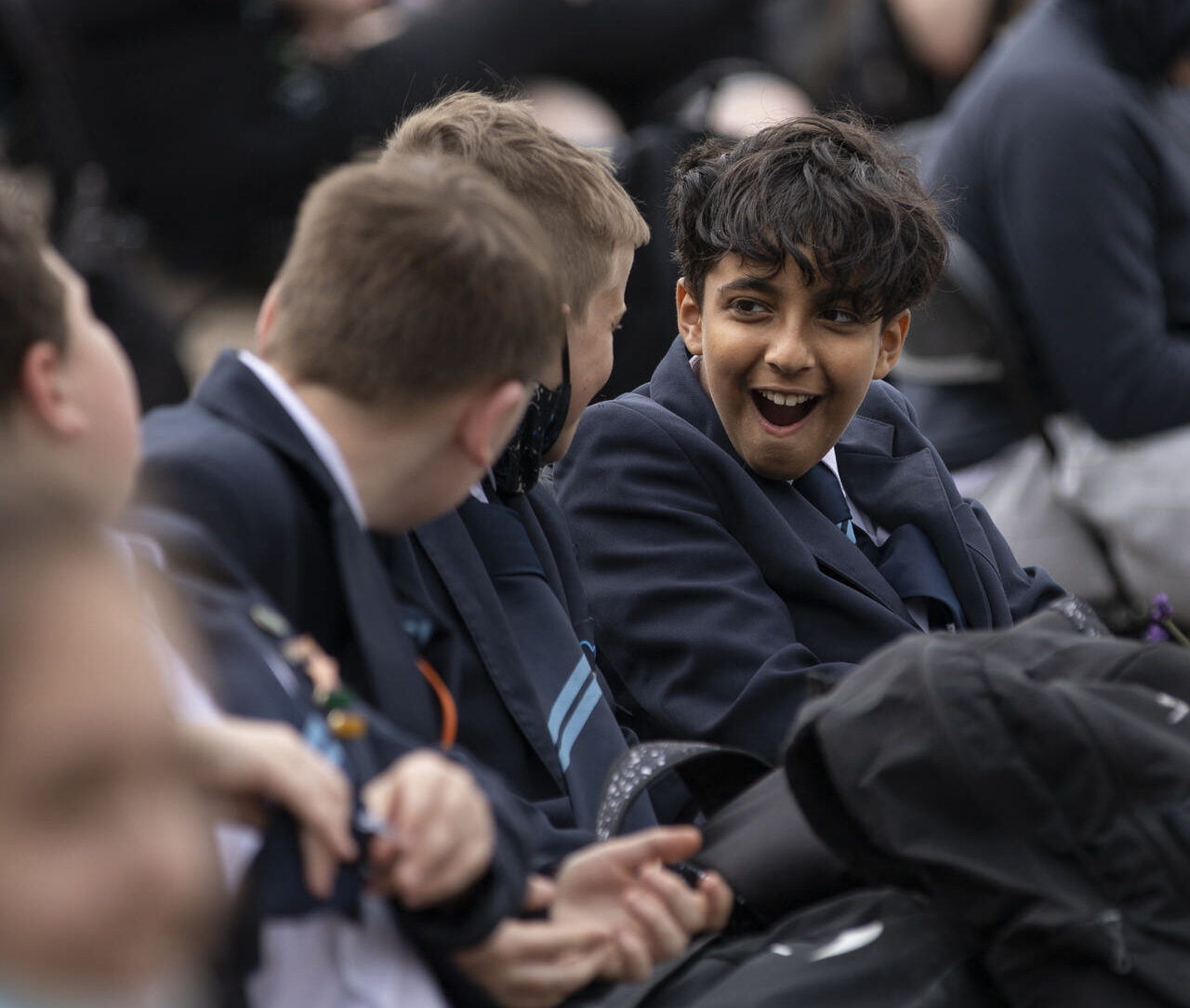

A single negative adult interaction on a first time visit can turn a young person off to the entire artform
The original pilot taught us valuable lessons which we have been able to share, and incorporate into other programmes and projects.
A great example of this is the extent to which positive adult interaction with ALL staff associated with a venue can make or break a visit. Their feedback revealed that a single negative adult interaction on a first time visit can put them off the entire artform, making them unlikely to visit again (unless actively persuaded otherwise). This reinforced Curious Minds’ strong belief that it’s absolutely essential that first time engagements are of the highest quality - especially for those least likely to take part in regular cultural activity.
A great example of this is the extent to which positive adult interaction with ALL staff associated with a venue can make or break a visit. Their feedback revealed that a single negative adult interaction on a first time visit can put them off the entire artform, making them unlikely to visit again (unless actively persuaded otherwise). This reinforced Curious Minds’ strong belief that it’s absolutely essential that first time engagements are of the highest quality - especially for those least likely to take part in regular cultural activity.
This, amongst other things, prompted Curious Minds to design a bespoke course - I'm A Teenager, Get Me Into There - to support Front of House staff with their interactions with teenagers in particular.
Curiosity continues to flow in this project in all directions. Currently we’re asking ourselves:
- What can young people who are engaging for the first time notice, that others can’t?
- What happens when you choose a visit out of curiosity, rather than trying to pick something you know you’ll like?
- What can we learn from the patterns of how young people engage in culture, in school, out of school, with adults and on their own?
- What happens if we remove the ‘usual’ barriers of adult support, transport and money from first time cultural visits?
Our 9 schools are almost ready to begin their visits, and we’re really excited to see what they choose to do, what they tell us about it afterwards and, most importantly, what we and the Cultural Education sector can learn from it afterwards.
Watch this space!
About 'The Arts in Schools'
40 years after the original publication of the seminal Calouste Gulbenkian Foundation report, A New Direction has been working with partners across the cultural education landscape to convene a new conversation on the value of the arts for young people in and beyond schools. The original 1982 report was hugely influential with Local Authorities, which then managed the country’s schools, and paved the way for the arts to be included in England’s first National Curriculum in 1988. It also inspired many professional arts organisations to engage with the education sector for the first time.Four decades on, there is a growing body of international evidence asserting the value of the arts in the lives of children and young people across a range of metrics - but this awareness has not been absorbed within our education policy and systems. This new conversation seeks to examine the current state of play, what we have learnt and lost over the intervening decades, and what a new set of recommendations could look like. It will culminate in the publication of a follow-up report in March 2023.
Join the Curious Minds network and sign up to receive our email newsletters.

